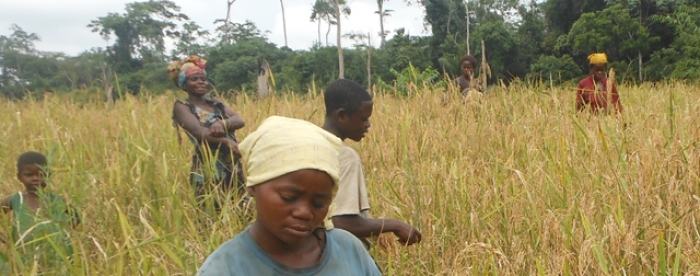International institutions and NGOs have made a large contribution to getting community forestry recognized as a viable approach to forest management in tropical countries. Community forestry enables local people who live in and around the forest to benefit from its products (and the financial gains these products provide) while managing the forest resource base.
The involvement of international parties in fostering community forestry may create the impression that it is an externally imposed model of forest management. However, in many countries communities have long-established patterns of forest use. These forest use patterns are not always recognized as forms of community forestry but are important to consider as a departure point for future approaches.
TBI has implemented studies in various countries on the way that local people, individuals and social entities are involved as communities or as user groups in the use and management of the forest at the local level.
In Bolivia two Ph.D. studies on forest governance were conducted within the Programa Manejo de Bosques de la Amazonia Boliviana (PROMAB). This EU-funded forest research and development initiative was carried out by the Dutch NGO HIVOS, Utrecht University, TBI, the Universities of Beni and Pando, and the NGOs IPHAE and HERENCIA.
Community forestry in Bolivia has been implemented since the enactment of the 1996 forest law. The Ph.D. studies show that local forest governance arrangements are strongly influenced by historical changes in access to land, to financing and to forest resources. Market access due to improved infrastructure is also important. Policy changes have given local people more control over land and forest resources and enabled them to sell trees through their contacts with urban dwellers and traders, which were previously established for the sale of Brazil nuts. The economic benefits from the sale of timber have become an important component of local livelihoods.
Outcomes vary in terms of socioeconomic development and sustainable resource use. Some communities implement forest management plans that provide collective benefits. In other cases people prefer to sell trees individually and receive benefits directly. Still other communities apply systems that allow for the generation of both individual and collective benefits. The resulting local forest governance arrangements are dynamic and apply both formal and informal regulations on forest use as these fit within existing forest use patterns.
In DR Congo property rights over forests are held by the central government. Customary rights are recognized, but not formalized. Community forestry as an alternative model for forest management is included in the 2002 Forest Code, but as of 2012 its regulations had not yet been approved. In practice, however, customary regulations rule what happens on the ground and local communities are the main and most important actors regarding the use and management of the forest on their lands.
In DR Congo TBI participated in a pan-African research project on forest governance named the Responsible Forest Governance Initiative*. TBI researchers showed that forest use patterns are dynamic and that outcomes are influenced by strong customary ownership over land and resources, improved infrastructure, increased market demand for timber and other forest products and the role of local authorities. Communities increasingly sell timber to artisanal loggers and have learned to negotiate timber prices according to tree species, volume and distance from the harvesting site to the road.
Internally, communities are developing rules to regulate decision-making on benefit sharing and logging in communal and family forests. This process often requires lengthy negotiations and can create conflicts involving community members, local authorities (chiefs), loggers and government officials. The rural population has developed multiple strategies to enforce local authorities to share benefits from timber sales, but they face difficulties when resource exploitation takes place by powerful parties (politicians and the military) in collaboration with customary authorities.
--------------------------------
* The Responsible Forest Governance Initiative (RFGI) is a research and training program focusing on environmental governance in Africa. It is funded by the Swedish International Development Agency (SIDA) and executed by the Council for the Development of Social Sciences Research in Africa (CODESRIA), the International Union for the Conservation of Nature (IUCN) and the University of Illinois at Urbana-Champaign (UIUC).
